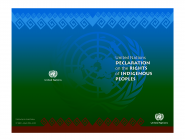The Education Department
At the very beginning of the formation of the regional government in 1991, the government was lacking in the appropriate material and technical skills necessary to manage all the official public utilities in the region. This was nowhere more clear than in the entire educational process in all its stages. In 1992 when the regional parliaments approved the educational rights for our Assyrian people using our mother language, the duty of supporting this strategic project became the most important priority for our organization. Even before the official approval, AAS-I was providing most of the necessities for these public schools.
Our organization participated in this massive education project by bearing the heavy costs of translating and printing textbooks in Assyrian. In 1996 UNESCO coordinated with the Ministry of Education to assume a larger role in this process.
In the beginning of the project of teaching in Assyrian language, we lacked a complete teaching staff. Thus the lecturers were paid a monthly bonus from our organization, as well as a proper encouraging rewards for the educational staff; we funded the complete costs of transportation for the primary and secondary Assyrian students in the Duhok and Erbil governorates, in additional to providing the furniture for the schools of the two governorates. A special committee was established for education of Assyrian language; it is still in operation and receiving full support from our organization which helps it carry out its duties, including the different school activities that are carried out in different regions supervised by this Society. The most important of these activities are preparing programs for training the educational staff in accordance with the available capabilities. Our Society honors a number of outstanding students yearly.
When the process of teaching Assyrian language reached secondary level, there was no other solution but to gather all of the students in one central secondary school, the Assyrian Nissibin school in Duhok. As a result, we needed to prepare dormitories for the students from other villages and cities that were far from the center town of Duhok.
This was a new and additional to our activities. As a starting point, we rented some houses and furnished them for the purpose, as well as providing three meals daily during the school year for the student of these departments.
The administration of this process requires assigning supervisors for the departments, and assigning cooks and workers for providing the necessary services, while the students attend solely to their studies.
As for the cities and villages near Duhok, the solution was to provide and bearing the costs of transporting the students to and from the schools.
This process lasted for two years until we received a special grant from the Assyrian Aid Society of America to implement a project of building special dormitories. The big project was implemented in the year of 2001.
Thus the paying of the rents in more than one area stopped and the heavy load of the process was removed from the shoulders of the organization. AAS-I continued to pay the costs of food and transportation and the salaries of the workers in the dormitory buildings. Recently, the Duhok municipality began to share in bearing some of those costs.
The headquarters of the Society was built in the same compound allocated for the dormitory buildings. This simplified the process of administrating the student residence as well as relieving us from the payment of rents for our office.
The AASI continued its support for the Assyrian Education Process, thoughtfully and yielded positive results through its continuity and expansion in many areas within the provinces of Dohuk, Erbil and after 2003 as well as to areas in the plain of Nineveh, Kirkuk, and others.
Despite the commendable support of the government in the region, that significantly provides to Assyrian schools, the AASI continued its support by paying the lecturers' salaries whom didn't employed by the government, on the other hand, the AASI pays for the maintenance of the schools, it provides the schools with their requirements, and paying the transportation cost differences' for the students and teachers of the Assyrian schools.



